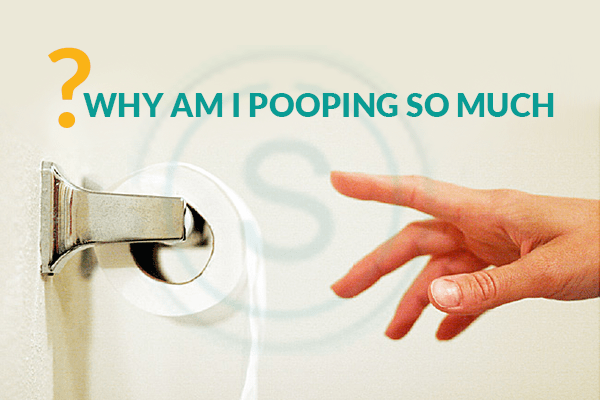Pooing a lot?
But, how much is too much? Is it normal? Let’s find out.
Pooping habits vary from one person to the other. There is no exact number of times an individual should have bowel movements per day.
Some people may go for a few days without pooping while others poop once or twice a day – says experts at SMILES.
There are a number of reasons why your bowel movements increase or decrease, including dietary habits and physical activity. However, increase in the number of bowel movements is not mostly a cause for concern unless they are accompanied by uncomfortable symptoms.
SMILES will make you understand the common causes of excessive pooping.
What causes pooping so much?
The experts of gastroenterology at SMILES outlined the top reasons why your bowel movements have increased
1. Change In Diet
One of the most common reasons for frequent bowel movements is a change in a diet. Increased intake of fiber can make people defecate more often than they usually do.
So, if you suddenly started pooping a lot, you might be started eating fruits or adding more vegetables to your diet. Dietary fiber can also help soften stools and prevent anorectal problems such as piles, fistula, and constipation.
2. Infection
Excessive pooping and diarrhoea are often connected to infections. This could be parasitic, viral, and bacterial infections (everything from flu to E.coli).
While this is normal if you have bloody stools or fever with it, you should get it checked out immediately
3. Irritable Bowel Syndrome (IBS)
IBS is a common intestinal disorder that causes abdominal pain, gas, and can also make to poop a lot. A patient with IBS gets sudden cramping and abdominal pain associated with constipation or diarrhea.
If you notice any of these symptoms in addition to excessive pooping, visit the best coloproctologist in Bangalore.
4. Increased Workouts
The increase in the amount of your regular exercise can make you poop more than usual. This is because exercises increase the muscle contractions in the colon, working stool out of the body than it did earlier.
Hence it is recommended to workout more if you are constipated or having gastrointestinal issues.
5. Stress
It is another important factor to consider for a change in pooping habits, including pooping more than once per day. And for people with gastrointestinal problems such as IBS, constipation, piles, anal fissures or fistula, stress can be a poop trigger.
Moreover, many people have comparatively loose bowel movements when they are under stress.
6. Inflammatory Bowel Disease (IBD)
IBD is different from IBS. IBD includes chron’s disease and ulcerative colitis, which cause chronic inflammation in the digestive tract. Other symptoms of IBD include fatigue, blood in stools, frequent bowel movements, and severe abdominal pain. IBD can even cause permanent damage to the digestive tract.
7. Medications
Certain medications including some antibiotics can change the normal functioning of the gastrointestinal tract. This also includes the bacteria made in the system, which in turn may lead to excessive pooping or diarrhoea.
The increase in your bowel movements caused due to medications subside when you stop taking the antibiotics.
How can I prevent excessive stools?
In many cases, pooping a lot can be prevented by following the tips below:
- ● Drink enough water
- ● Maintain a well-balanced diet
- ● Follow a regular exercise.
- ● Skip the caffeine
- ● Cut down on sugar
- ● Stop eating foods that you have intolerances
- ● Don’t hold in your poops
However, along with excessive pooping, if you have persistent abdominal pain, watery or bloody stools, get in touch with the best gastroenterologist in Bangalore immediately.
This could be a sign of a more serious problem like an infection or IBD, piles, etc..,

